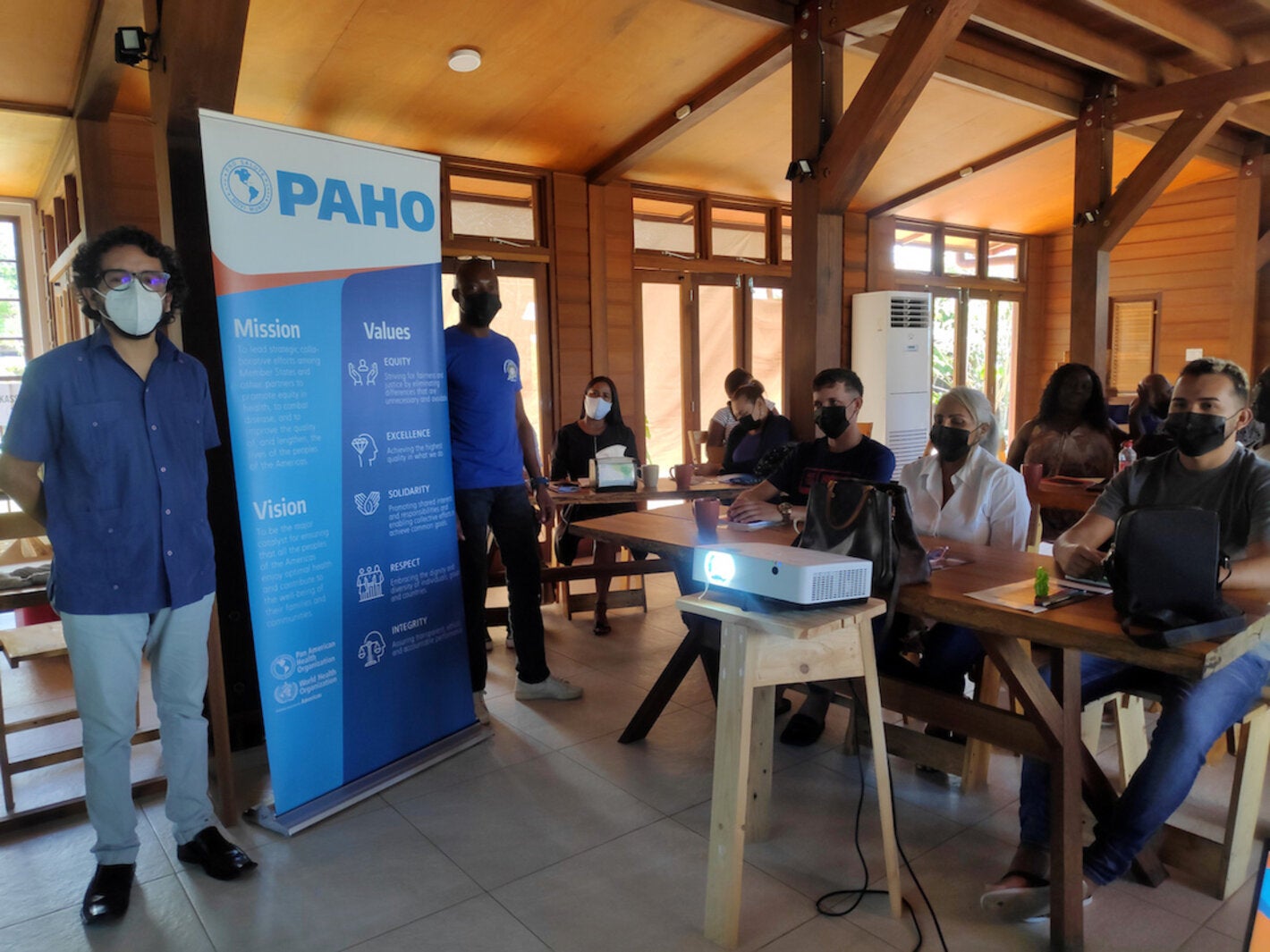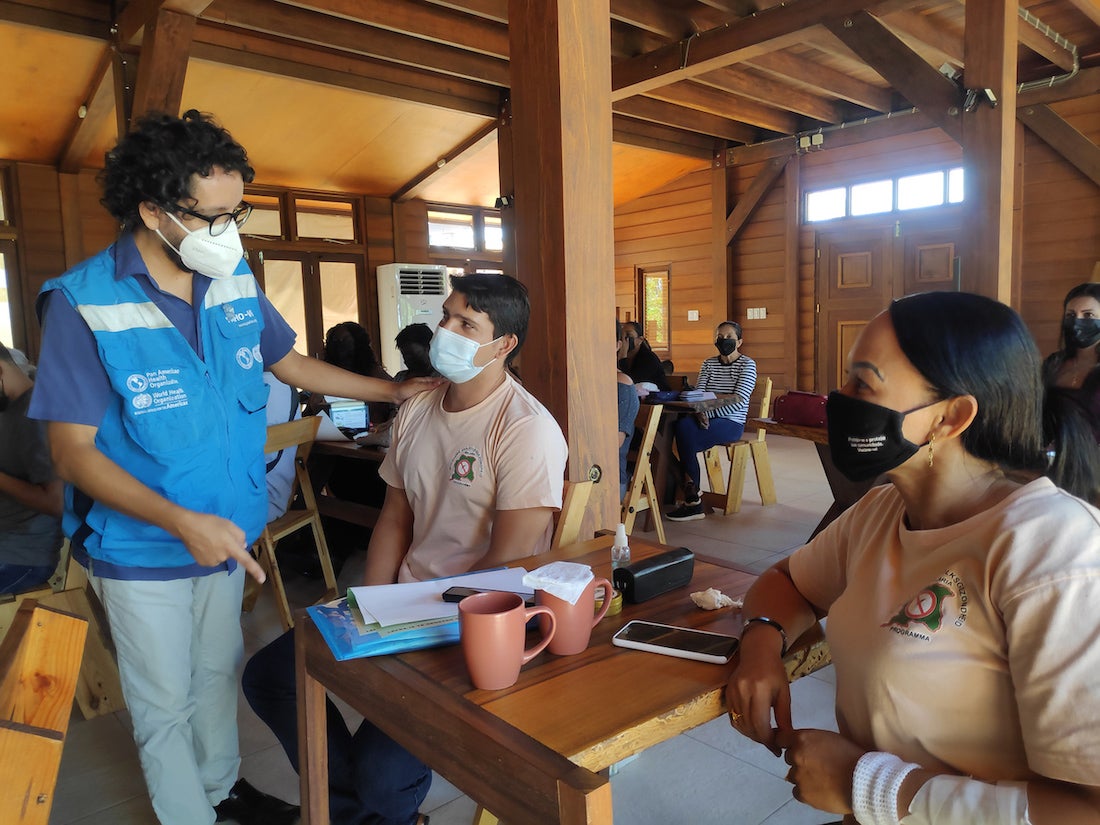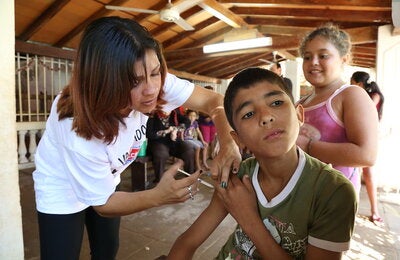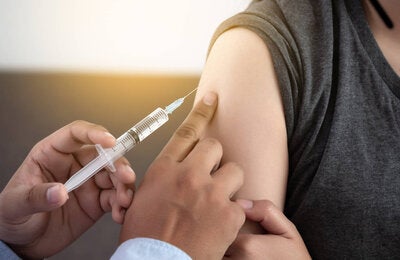
PAHO Technical Officer, Tropical and Vector-borne Diseases Oscar Mesones Lapouble & the Coordinator of diagnostics and treatment of the Malaria Program, Mr. Hedley Cairo during the opening of the Malaria Service Deliverers Training
Suriname, November 30, 2022 (PAHO) – The continuous effort in the fight against Malaria in Suriname was noticeable during the Malaria Service Deliverers Training held from 14 - 24 November, organized by the Malaria Program Suriname with support from PAHO/WHO. This 10-day training aimed to build capacity amongst the malaria service deliverers (MSD) to enhance the malaria surveillance system in the remote hard-to-reach areas in Suriname and in mobile migrants’ communities.
Surveillance of malaria infection in the human population is the backbone of malaria elimination and was recognized as an intervention for malaria elimination in the initial Global Malaria Program. The third pillar of the global technical strategy for malaria 2016 – 2030 is to transform malaria surveillance into a core intervention.
The Malaria Service Deliverers network is an essential part of the malaria surveillance system in Suriname. The network consists of community health workers who are essentially lay persons trained in malaria diagnosis and treatment of uncomplicated malaria, to provide malaria services under supervision of the Malaria program’s TropClinic to their peers in often remote hard to reach areas in the forested interior and other mobile migrants’ communities in Suriname.
The implementation of the MSD network in remote and hard-to-reach areas is a proven successful strategy that was designed to lower barriers to access to malaria services. In Suriname's effort to reach malaria elimination the MSDs have become indispensable to the National Malaria Control Program. They bring information, mosquito nets and diagnostics and treatment to populations that might otherwise have been "left behind". Said Dr. Helene Hiwat - Malaria Program Director
"Frequent training of the Malaria Program workers is a key element of the success of Suriname on the road to elimination" said PAHO Technical Officer Oscar Mesones Lapouble.
The key objective of this training was to strengthen malaria surveillance and case management, particularly the capacity for malaria diagnosis by rapid diagnostic test in remote gold mining areas and in other mobile migrants’ communities in Suriname as well as the treatment of uncomplicated malaria.
The participants increased their knowledge through several learning objectives such as the integration of other diseases into the malaria program; the MSDs received an introductory training in recognizing selected infectious diseases, such as COVID-19, Cutaneous Leishmaniasis, HIV and Leprosy, and measuring of vital signs, blood glucose and blood pressure. The workers also learned how to identify signs of rubella and measles and to report suspected cases to their supervisors promptly.
"The importance of this collective training is, by having all of the Malaria Service Delivers in the same training, we ensure that there is uniformity in what they learn and what they will put into practice." mentioned by the Coordinator of diagnostics and treatment of the Malaria Program Mr. Hedley Cairo
In addition, as progress is made towards elimination, health staff should be trained to recognize the symptoms and signs of malaria in order not to miss cases and to give appropriate treatment immediately after diagnosis and to conduct a proper case investigation. Lastly, the focus was also for the MSDs to learn and practice how to effectively communicate and interact within their communities.




